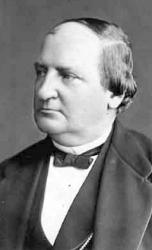Planning worship?
Check out our sister site, ZeteoSearch.org,
for 20+ additional resources related to your search.
- |
User Links
Person Results
Cyril Taylor
1907 - 1991 Person Name: Cyril V. Taylor, b. 1907 Composer of "COOLINGE" in Singing the Living Tradition Cyril V. Taylor (b. Wigan, Lancashire, England, 1907; d. Petersfield, England, 1992) was a chorister at Magdalen College School, Oxford, and studied at Christ Church, Oxford, and Westcott House, Cambridge. Ordained a priest in the Church of England in 1932, he served the church as both pastor and musician. His positions included being a producer in the religious broadcasting department of the BBC (19391953), chaplain of the Royal School of Church Music (1953-1958), vicar of Cerne Abbas in Dorsetshire (1958-1969), and precentor of Salisbury Cathedral (1969-1975). He contributed twenty hymn tunes to the BBC Hymn Book (1951), which he edited, and other tunes to the Methodist Hymns and Psalms (1983). He also edited 100 Hymns for Today (1969) and More Hymns for Today (1980). Writer of the booklet Hymns for Today Discussed (1984), Taylor was chairman of the Hymn Society of Great Britain and Ireland from 1975 to 1980.
Bert Polman
Cyril Taylor
James Langran
1835 - 1909 Composer of "LANGRAN" in A Hymnal for Friends James Langran (b. St. Pancras, London, England, November 10, 1835; d. Tottenham, London, England, June 8, 1909) studied organ as a youth but did not receive his Bachelor of Music degree from Oxford until he was forty-nine years old. He had several organist positions–the longest was at St. Paul's Church, Tottenham, England, from 1870 to 1909. He also taught music at St. Katherine's Training College for Schoolmistresses (1878-1909). Music editor of theNew Mitre Hymnal (1875), Langran composed around fifty hymn tunes and contributed several of them to early editions of Hymns Ancient and Modern.
Bert Polman
James Langran
Franz Abt

1819 - 1885 Composer of "WILLINGHAM" in The Hymnal for Boys and Girls Franz Abt, born Dec. 21, 1819 at Eilenburg in the Prussian provinces of Saxony. His father was a musician and clergyman of the Lutheran Church. Franz studied music at Leipsic, and became known as a song-writer in 1838. In September, 1841, he married, and was leader of the orchesta at the Zuric theatre; became a teacher in 1842, but was litle known until his song "When the Swallows Homeward fly" carried his name to all parts of the civilized world. In 1865 was concert-master at Brunswick, and conducted the great festival at Dresden. He came to the United States in 1872, and was present at teh Peace Jubilee, Boston, where he directed the performance of some of his own music, arriving in New York May w, wher a testimonial concert was given for his benefit at Steinway Hall, May 18. He was received at Philadelphia by the German societies, with torch-light processions and cannonade, May 15, 1872.
A Dictionary of Musical Information by John W. Moore, Boston: Oliver, Ditson & Company, 1876
Franz Abt
Edward Dearle
1806 - 1891 Composer of "PENITENTIA" in The Beacon Song and Service book
Edward Dearle
Minot J. Savage
1841 - 1918 Person Name: Minot J. Savage, 1841-1918 Author of "Seek not Afar for Beauty" in A Hymnal for Friends Savage, Minot Judson, D.D., was born at Norridgewock, Maine, June 10, 1841, and educated at Bangor Seminary, where he graduated in 1864. From 1867 to 1873 he was a Congregational Minister, and then he joined the Unitarians, and has now (1900) a charge in Boston. He has published several works, including Poems, Boston, 1882. He also edited, with H. M. Dow, Sacred Songs for Public Worship, Boston, 1883, to which he contributed 46 original hymns. In hymnals other than this, of his hymns the following are in common use:—
1. Dost thou hear the bugle sounding. Consecration to Duty.
2. Father, we would not dare to change Thy purpose, &C. Prayer.
3. 0 God Whose law is in the sky. Consecration to Duty.
4. 0 star of truth down shining. Truth.
5. The God that to the fathers revealed His holy will. God unchangeable.
6. The very blossoms of our life. Holy Baptism.
7. What purpose burns within our hearts. Joining in Church Fellowship.
8. God of the glorious summer hours. New Year This is in D. Agate's Sunday S. Hymn Book, 1881, No. 371, and dated 1875. From the Sunny Side, N.Y.. 1875,p. 119.
Some of these hymns are given in Hunter's Hymns of Faith and Life, Glasgow, 1889, and recent American hymnals.
--John Julian, Dictionary of Hymnology, New Supplement (1907)
Minot J. Savage
Samuel Sebastian Wesley

1810 - 1876 Composer of "ELLINGHAM" in At Worship Samuel Sebastian Wesley (b. London, England, 1810; d. Gloucester, England, 1876) was an English organist and composer. The grandson of Charles Wesley, he was born in London, and sang in the choir of the Chapel Royal as a boy. He learned composition and organ from his father, Samuel, completed a doctorate in music at Oxford, and composed for piano, organ, and choir. He was organist at Hereford Cathedral (1832-1835), Exeter Cathedral (1835-1842), Leeds Parish Church (1842-1849), Winchester Cathedral (1849-1865), and Gloucester Cathedral (1865-1876). Wesley strove to improve the standards of church music and the status of church musicians; his observations and plans for reform were published as A Few Words on Cathedral Music and the Music System of the Church (1849). He was the musical editor of Charles Kemble's A Selection of Psalms and Hymns (1864) and of the Wellburn Appendix of Original Hymns and Tunes (1875) but is best known as the compiler of The European Psalmist (1872), in which some 130 of the 733 hymn tunes were written by him.
Bert Polman
Samuel Sebastian Wesley


 My Starred Hymns
My Starred Hymns


